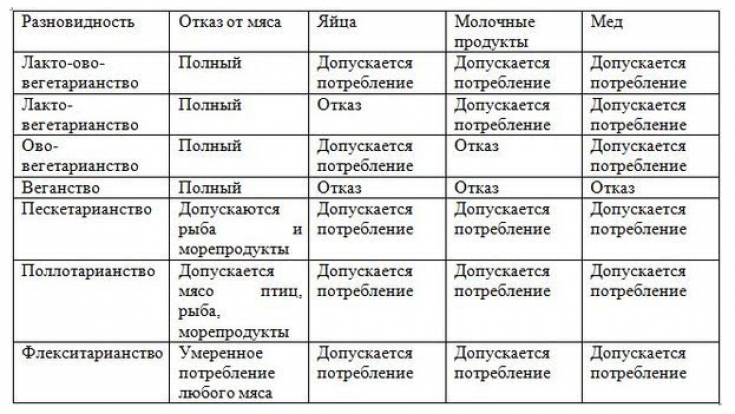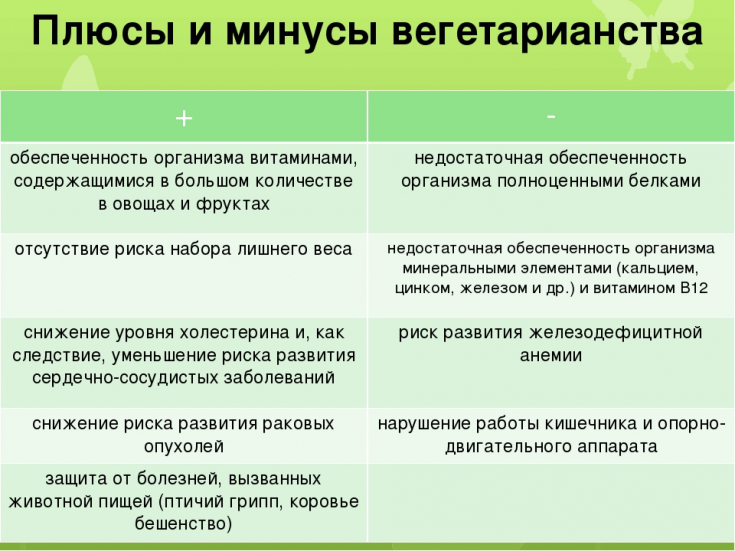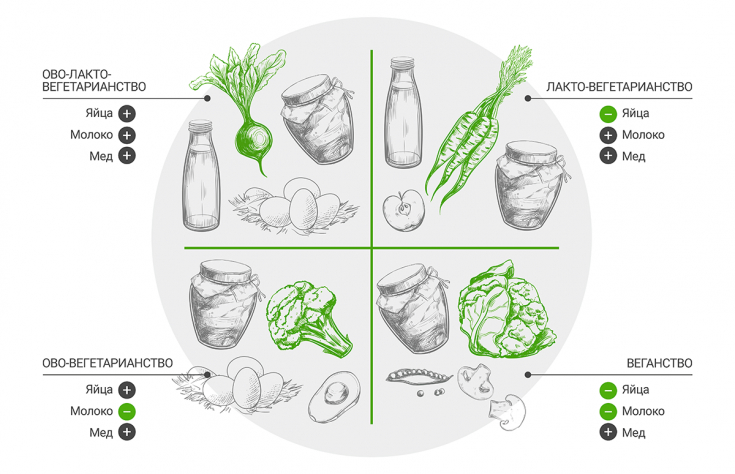All pregnant women are potentially at risk of developing iron deficiency (between 7-30% of all pregnancies), as the need for iron is almost twice as high during this period of life. But at the same time, following a vegetarian diet during pregnancy and lactation, you can satisfy the body with all the necessary nutrients.
Read on estet-portal.com the latest recommendations for a vegan diet during pregnancy to avoid deficient conditions during this important period.
Prevention of iron deficiency during pregnancy through vegetarianism
In plant foods, which are more commonly consumed in vegetarian diets, non-heme iron is present, absorption of which is more variable than heme iron found in meat, fish and their derivatives (bioavailability is 1-34% and 15 -35% respectively).
Follow us on Instagram!
Dietary factors and food preparation methods can affect the absorption of non-heme iron. For example, vitamin C and other organic acids (citric and malic), carotene and retinol increase its bioavailability.
Soaking beans and grains, sour starters, fermentation, and seed germination can increase non-heme iron intake by reducing phytates that interfere with normal absorption.
If a vegetarian diet is followed, iron-rich foods such as whole grains, beans, soy and its derivatives, nuts and seeds, wheat germ and dried thyme, and green leafy vegetables should be consumed daily during pregnancy in combination with sources of the vitamin C or beta carotene. If the hemoglobin level is.
Fluconazole during pregnancy: hidden danger
Providing iron levels in children while following a vegetarian diet
All children under the age of 1 year, regardless of the principle of nutrition, are at risk for developing iron deficiency. For optimal iron intake, it is necessary to focus on complementary foods fortified with iron: baby cereals from cereals, bean purees and shelled beans, soy and its derivatives, nuts and seeds.

To increase the iron content of infant food, it is recommended to add wheat germ to various foods (eg soy yogurt or mashed hard vegetables). By adding a few drops of lemon juice to a main meal, iron absorption can be increased, since juice is a source of vitamin C. Be aware of the restriction of fiber in a vegetarian diet, as they impair nutrient absorption. Children of vegetarian parents over the age of 1 should also have foods high in iron in their daily diet.
History of Preeclampsia: How to Reduce the Risk of Stroke
Maintenance of calcium in vegetarian diet during pregnancy
Calcium-rich foods include most green leafy vegetables that are low in oxalates, various types of cabbage, sesame seeds, almonds, fortified plant-based milks and yogurts, soybeans, tofu, dried figs. Calcium from water has a high bioavailability (23.6-47.5%), so calcium-rich mineral water (300-350 mg/l) is also recommended for vegetarian people.

The need for calcium increases dramatically during pregnancy and decreases during lactation. Therefore, it is recommended to consume approximately 6 servings of calcium-rich foods daily. The use of breast milk or milk formula by vegetarian children fully satisfies the body's needs for calcium. Once complementary foods are introduced, eating 3 to 5 servings of calcium-rich foods daily is sufficient.
What is the danger of migraine during pregnancy
Impact of Vegetarianism on Vitamin D Levels
Vitamin D levels in the body are more dependent on sun exposure and vitamin supplementation. Nutrition plays a secondary role in the intake of this vitamin. If there are risk factors for low endogenous synthesis of vitamin D, such as pigmented skin, insufficient sun exposure, living in northern latitudes, it is recommended to definitely take this vitamin. Deficiency is best confirmed by laboratory determination of serum 25-OH-vitamin D levels.

Most prenatal vitamin complexes contain an insufficient amount of vitamin D and do not prevent the development of its deficiency in a child in the antenatal and postnatal periods. Therefore, during pregnancy, it is recommended to consume vitamin D daily at a dose of 1000 to 2000 IU / day. 25-OH-vitamin D levels should be checked along with calcium, phosphorus and parathyroid hormone 6 months after starting vitamin D supplementation. Consumption of more than 4000 IU/day during pregnancy is dangerous, so high doses of vitamin D should be avoided.
Urinary tract infections during pregnancy: evidence-based medicine
Plant-based and fermented foods, seaweeds do not contain sufficient amounts of vitamin B12, and foods fortified with this vitamin are not always available. Therefore, all vegetarians, including pregnant and breastfeeding women, are advised to take B12 supplements.
A well-planned vegetarian diet covers all nutritional needs for all stages of life, including pregnancy, breastfeeding, the first year of life and childhood. Today, anecdotal cases of malnutrition in children who follow a vegetarian diet are associated almost exclusively with a diet that does not meet the needs of the body or a lack of vitamin B12 supplements. A vegetarian diet is considered rational if all the requirements of an adequate diet are met.
Effects of Vegetarianism on Skin Condition







Add a comment